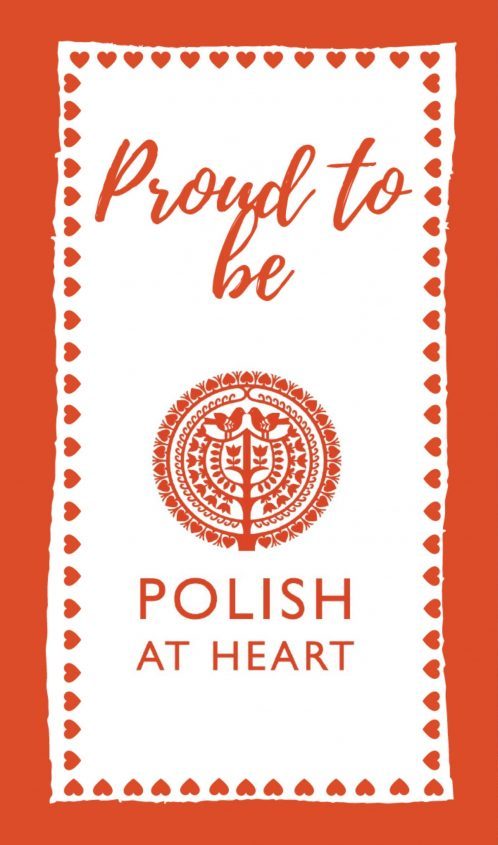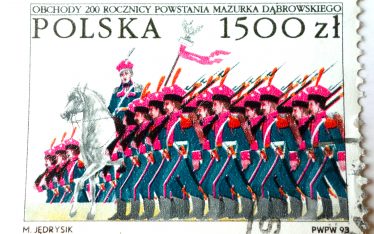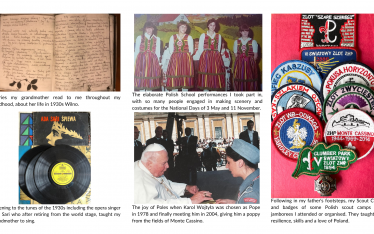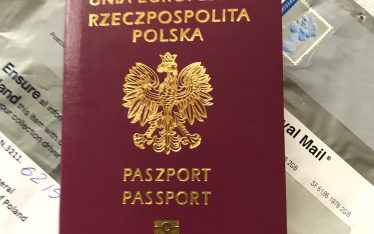Do you identify as an invisible Pole? In your social or professional life, would others see you as belonging to a Polish community? You may no longer have a Polish surname to identify you. Yet at home you keep the traditions and have the cuisine of a Pole? Little has been written about Poles not immediately visible but now a project at the London School of Slavonic and East European Studies has finally tackled this issue. The book, titled “Invisible Poles” contains many interviews with Poles like us and is now providing a research resource for future students to explore.
The book was written as a follow up to research by social anthropologist Keith Sword in the 80s and 90s about Poles in the U.K. Sadly he died suddenly in his 40s, though I had the pleasure of meeting him when studying for my history degree. I was astonished that he invited me to visit and spent time discussing my dissertation on my local Polish community. I was eternally grateful that he shared with me the drafts of his book Identity in Flux: the Polish Community in Great Britain, which you can read online here, several years before it was published. He gave his permission to quote it and I shall never forget his kindness.
Now Kinga Goodwin and Anne White (of SSEES) have carried out these interviews which hopefully will lead to a lot more research into Poles like us.

Keith Sword had focused on what was then “the younger generation” – do you recognise yourself? He found the key difference between continuing the language and culture was whether Poles had surviving relatives in the People’s Republic of Poland and cited visits to Poland as the key to people’s renewed sense of Polish identity. Would you agree? Apparently I cried all the way to the German border after we visited family in Poland the 1970s so it clearly made a deep impression and I have very vivid, memories of that childhood trip.
Invisible Poles picks up the story after 2004. It explores how people of Polish heritage, brought up in communities with a strong patriotic, anti-communist and catholic character, felt about their identity after the arrival of Poles from Poland who had little idea of how these communities were created. Did it help Poles in the UK to come out of their invisibility or begin to accentuate their Polish identity? How have they engaged with Polishness through travel, events, access to media and having new choices to buy Polish food. As we know, for Poles, hospitality is key to any interaction.

Previous research has shown that Polish emigres initially suffered a disproportionately high incidence of mental health compared to other post war refugees, attributed not only to their wartime experiences but their sense of betrayal. Michelle Winslow tackled the subject in her Phd dissertation in 2001 finding that a combination of needing to come to terms with a traumatic past and coping with present difficulties, meant psychological problems were higher in elderly Poles than in other immigrant groups. In the ‘Invisible Poles’ study the subject emerged spontaneously as a strong theme in some interviews. There was a generic sense of ‘otherness’, of not being able to talk to friends about the trauma of the wartime experiences of parents. It may be that trauma shaped intergenerational relations, directly or indirectly and again this needs further research.

Some of the interviewees mentioned feeling Polish in the UK but finding it annoying when Poles would call them English and others felt a renewed sense of connection with Poland on travels, feeling emotionally ‘at home’. Several have made friends with ‘new’ Poles, others felt a divide between the ‘old Poles’ and ‘new Poles’ and the lack of interest in Polish history and heritage amongst young Poles which has affected their involvement with emigre communities. Whilst a few who have contact with Poles have updated their language skills in line with modern Polish, others use Polish sporadically, often only in Polish shops.
Have a read, the link is here. You will find a lot of common issues with these interviewees, how they have personally navigated the changes post 2004 and the effect on their Polish identity. The website for Invisible Poles also has some interesting links. If you have any difficulties linking to the book, search for it in the online UCL catalogues.


 1.Tracing Family History pre-WW2
1.Tracing Family History pre-WW2 2. Tracing Family History WW2
2. Tracing Family History WW2


